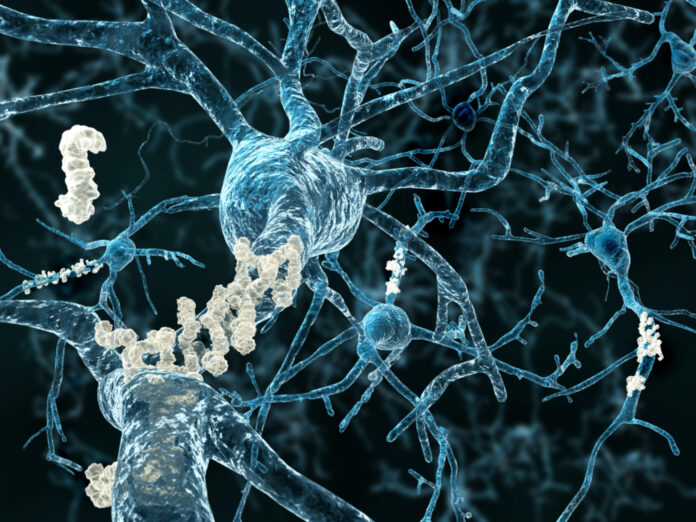Five people may have “caught” Alzheimer’s after receiving a growth hormone from human cadavers during childhood.
Between 1959 and 1985, over 1,800 patients in the U.K. were treated with a human growth hormone extracted from the pituitary glands of dead bodies. The hormone, which is synthetically produced today, was mostly administered to children to treat severe short stature, often caused by a deficiency of this hormone.
In 1985, one of these patients died from a rare brain disease called Creutzfeldt-Jakob disease—a fatal condition caused by an abnormal infectious protein called a prion. A prion can be transmitted between individuals and cause abnormal folding in important cellular proteins, particularly those in the brain, according to the U.S. Centers for Disease Control and Prevention.
selvanegra/Getty
This abnormal protein folding can lead to brain damage and progressive neurodegeneration that, in the case of Creutzfeldt-Jakob disease, is invariably fatal.
Over the subsequent years, more patients who had received the growth hormone treatment began to fall ill with the condition, and the cadaver-derived treatment was withdrawn.
However, on closer inspection, many of the patients who developed Creutzfeldt-Jakob disease also showed protein clumps in their brains, which is characteristic of Alzheimer’s disease. And while the symptoms of Creutzfeldt-Jakob would have masked those of Alzheimer’s, some archived batches of the human-derived growth factor still contain measurable quantities of these Alzheimer’s-associated proteins.
Now, in a new study, published in the journal Nature Medicine, researchers from University College London (UCL) identified five individuals who had received human-derived growth hormone as children and years later developed symptoms consistent with early onset dementia. These individuals, aged between 38 and 55, met the diagnostic criteria for Alzheimer’s disease, with progressive impairment in two or more cognitive domains severe enough to affect their everyday life.
Following genetic testing, none of these patients showed genetic variants associated with an increased risk of Alzheimer’s disease.
“This study suggests that in very rare circumstances Alzheimer’s disease may be transmitted between humans via human growth hormone from deceased donors,” Susan Kohlhaas, executive director of research and partnerships at Alzheimer’s Research UK, said in a statement.
She went on: “Researchers found that the growth hormone had the potential to contain fragments of [abnormal protein deposits associated with Alzheimer’s], and a small number of people treated with this went on to develop symptoms of Alzheimer’s disease.
“Other potential causes of cognitive impairment, such as genes linked to young-onset Alzheimer’s and whether having a growth hormone deficiency itself was linked to Alzheimer’s development, were also ruled out,” she said.
However, Kohlhaas was quick to point out that this treatment is no longer in use.
“It’s also important to stress that this is the only recorded instance of Alzheimer’s transmission between humans,” she said. “There is no evidence to suggest that it can be passed through any other route, such as day-to-day activities or routine medical procedures. But this study has revealed more about how amyloid fragments can spread within the brain, providing further clues on how Alzheimer’s disease progresses and potential new targets for the treatments of tomorrow.”
Richard Oakley, associate director of research and innovation at the Alzheimer’s Society, added: “With the treatment not used since 1985, there is no cause for concern for the health of the general population. Nowadays, patients receive synthetic alternatives which have been approved for safety and do not pose a risk of transmitting diseases. There are no safety concerns with today’s treatments as they were developed to minimize the risk of any transmissible diseases.”
The authors noted that while Alzheimer’s transmission from human-derived growth hormone is no longer a cause for concern, their findings could have implications for the processes that drive Alzheimer’s disease and highlight the need to review measures to prevent accidental transmission of similar conditions via other medical treatments and procedures.
However, Bart De Strooper, professor and group leader at the UK Dementia Research Institute at UCL, said that this should not deter patients from receiving necessary treatment.
“No one should reconsider or forgo any medical procedure, especially for blood transfusion or neurosurgery which saves many lives worldwide every year,” he said in a statement.
Is there a health problem that’s worrying you? Do you have a question about Alzheimer’s disease? Let us know via [email protected]. We can ask experts for advice, and your story could be featured on Newsweek.
Uncommon Knowledge
Newsweek is committed to challenging conventional wisdom and finding connections in the search for common ground.
Newsweek is committed to challenging conventional wisdom and finding connections in the search for common ground.


